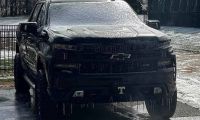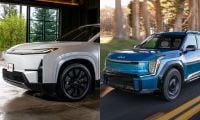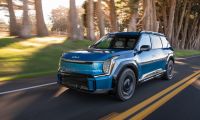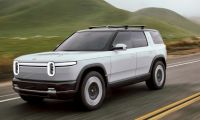The California Air Resources Board (CARB) has set mandates that require all automakers that sell vehicles in California to produce a certain number of zero emissions vehicles (ZEVs). Many states, including key markets in the Northeast, have adopted the standards set by CARB. As the deadline for ZEV vehicle introduction approaches, a series of meetings will be held by CARB to hear public and industry comments regarding the matter. At a recent such meeting, CARB decided to stay firm on requiring small automakers such as Volvo, Subaru, Mazda, Jaguar, and Land Rover to meet the ZEV requirements but did offer some wiggle room.
The compromise came in the form of plug-in hybrids and extended-range electric vehicles. Rather than force these small automakers to produce vehicles that run solely on hydrogen (fuel cell EVs) or electricity (battery electric vehicles), these smaller automakers will be allowed to bend the rules a bit. They will earn some credit if they produce plug-in hybrid vehicles that rely primarily on electricity, but that can also have gasoline engines to either extend their ranges as generators or act as a way to move the vehicle when the battery is depleted.
These small automakers found one friend on the Board. Daniel Sperling, a University of California-Davis professor and a member of the Air Resources Board argued that partial electric vehicles could reduce California’s air pollution faster than a strict EV mandate might. Many CARB members, EV advocates, and one single other automaker don’t care. They want gasoline gone at any cost.
Both Mazda and Subaru have partnered with Toyota and could market partial electric vehicles using that company’s existing technology. Volvo has a plug-in hybrid vehicle on sale now.
Tesla’s Ken Morgan argued that these automakers were too rich to deserve any breaks. An interesting take from a company whose only automotive product sells in the range of $ 70K to $130K and which receives government price supports at both the Federal and state level.
Source Note - We wish to credit Automotive News for many of the facts in this story.
Set as google preferred source











